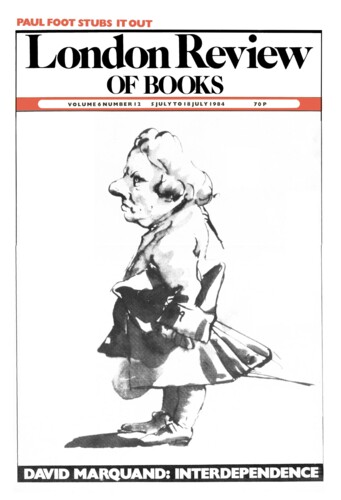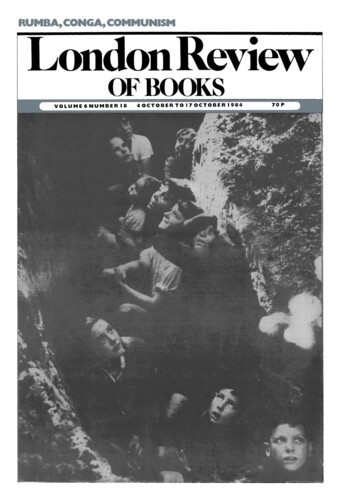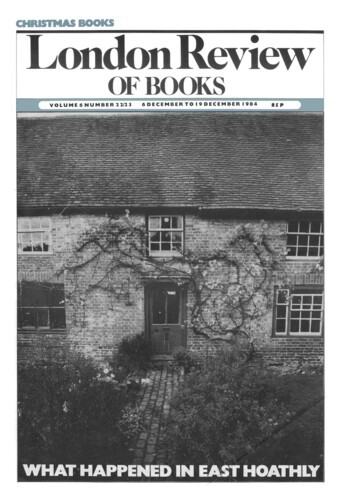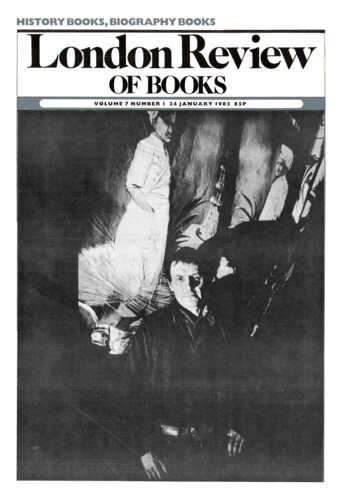Masters or Servants
Conrad Russell, 5 July 1984
Cardinal Richelieu’s sister did not dare sit down, because she believed she was made of glass. Facts such as this cry out for psychological explanation, and an attempt to provide it has been made by Elizabeth Wirth Marvick, in The Young Richelieu. The attempt is bravely made, and it rests on solid archival research in the Bibliothèque Nationale, the Archives, the British Library and other places. Yet, though the attempt to provide a psychological explanation of Richelieu and his family circle is well and honestly made, it is again necessary to express doubts about the documentary base for this type of work. In understanding the psychological make-up of our contemporaries, we rely heavily on aural and visual evidence: we listen carefully to them, and in so doing, learn to recognise the places where they protest too much, to perceive the vital distinction between the things they say because they mean them and the things they say because they do not mean them. Such evidence is inaccessible to the historian. In the 19th century, in the age which, in their different ways, Freud and Peter Gay have made their own, sheer bulk of documents may to some extent compensate for this difficulty. In the 17th century, the problem of psychological interpretation is altogether more intractable. That 17th-century characters had psychologies, as much as any later characters, may be instantly conceded. Yet it is hard not to respond to attempts to discover them with a hesitant ‘well, maybe’.





